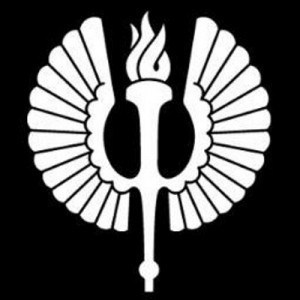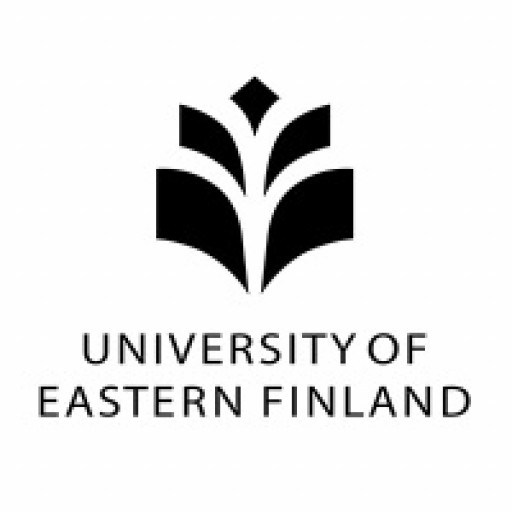Photos of university / #uniturku
The Master's Degree Programme in Molecular Biotechnology and Diagnostics at the University of Turku offers students an in-depth understanding of molecular mechanisms underlying biological processes and their application in biotechnology and diagnostics. This interdisciplinary program combines principles from molecular biology, genetics, biochemistry, microbiology, and bioinformatics to prepare students for careers in research, development, and industry sectors focused on health, agriculture, and environmental sustainability. Throughout the program, students gain practical skills in laboratory techniques such as DNA/RNA analysis, protein expression, cell culture, and molecular cloning, alongside theoretical knowledge of molecular pathways and disease mechanisms. The curriculum emphasizes innovation and problem-solving, encouraging students to develop new diagnostic tools, biotechnological products, and therapeutic strategies. Collaboration with industry partners and research institutes integrated into the program provides students with real-world experience and networking opportunities. Graduates are equipped to work in various fields including medical diagnostics, pharmaceutical development, biotechnology companies, and academia. The program fosters an international learning environment with courses taught in English, facilitating global career prospects. Students also have access to state-of-the-art laboratories and research facilities at the University of Turku, supporting hands-on learning and research projects. The Master's degree prepares students for doctoral studies or employment in sectors where molecular biotechnology plays a crucial role in innovation and societal impact. Overall, the program aims to develop highly skilled professionals capable of advancing scientific knowledge and applying it to solve complex biological and medical challenges.
The Master's Degree Programme in Molecular Biotechnology and Diagnostics at the University of Turku offers a comprehensive and in-depth education designed to prepare students for a dynamic career in the biomedical, pharmaceutical, and biotech industries. The curriculum focuses on the fundamental principles and advanced techniques of molecular biology, genetics, and diagnostics, providing students with the knowledge and skills necessary to innovate and excel in research, development, and applied sciences. Throughout the programme, students explore the molecular basis of diseases, the development of diagnostic tools, and the application of biotechnological methods to solve real-world health challenges. The programme combines theoretical coursework with practical laboratory training, ensuring graduates are proficient in modern molecular techniques such as PCR, sequencing, gene editing, and bioinformatics analysis. Students also gain experience working on research projects, often in collaboration with industry partners or research institutes, which enhances their problem-solving abilities and prepares them for doctoral studies or employment in various biotech sectors. The curriculum covers essential topics including molecular diagnostics, functional genomics, proteomics, bioinformatics, and pharmacogenomics, all taught by experienced faculty members who are active researchers in their fields. In addition to technical skills, the programme emphasizes critical thinking, scientific communication, and ethical considerations pertinent to modern biotechnology and diagnostics. The multidisciplinary approach encourages collaboration and innovation, fostering an environment where students can develop their unique ideas into practical solutions. Graduates of the programme are equipped to contribute to advancements in personalized medicine, vaccine development, and biomarker discovery, addressing key health issues locally and globally. The programme also offers opportunities for internships and international exchange, broadening students’ perspectives and professional networks. By completing this degree, students will be well-prepared for careers in academia, industry, or healthcare, contributing to the advancement of molecular medicine and diagnostics in Finland and worldwide.
Program requirements for the Master's Degree in Molecular Biotechnology and Diagnostics at the University of Turku include a strong foundation in biology, chemistry, and biotechnology. Applicants are expected to hold a Bachelor’s degree or equivalent in molecular biology, biochemistry, biotechnology, or related fields. The program emphasizes interdisciplinary skills, requiring students to demonstrate proficiency in laboratory techniques such as molecular cloning, PCR, genome editing, and protein analysis. Good command of scientific writing and communication skills are essential, as students will be expected to present their research findings in oral and written formats. Prior experience in bioinformatics and data analysis is advantageous, given the increasing role of computational methods in diagnostics and molecular research. The program also encourages applicants to have a motivation for innovation and research in health sciences and diagnostics. English language proficiency is mandatory; applicants must provide evidence through tests like TOEFL or IELTS unless they have completed previous degrees in English. The program aims to develop independent research skills, critical thinking, and a comprehensive understanding of molecular diagnostic tools, including their development, validation, and application in clinical settings. Coursework includes core modules in molecular biology, diagnostics, bioinformatics, and project management, complemented by laboratory work and a master’s thesis. Successful applicants are expected to participate in seminars, group projects, and internships, fostering collaborative and practical skills. Overall, the program prepares students for careers in research, diagnostics, and biotechnology industries, requiring dedication, analytical thinking, and a deep interest in molecular life sciences.
The Master’s Degree Programme in Molecular Biotechnology and Diagnostics at the University of Turku offers diverse financing options for both domestic and international students. Tuition fees for non-EU/EEA students are set according to the university's fee structure, with current fees being approximately €13,000 per academic year. These fees cover tuition, access to university facilities, and academic support services. Finnish and EU/EEA students are exempt from tuition fees due to Finnish higher education funding policies, but they are responsible for personal living costs, which can vary but are typically estimated between €700 and €1,200 per month, covering accommodation, food, transportation, and other expenses.
Students have several avenues for financing their studies. Scholarships are available through the University of Turku’s scholarship programs, which prioritize high-achieving international students; these scholarships can cover partial or full tuition fees. The university’s scholarship scheme usually requires applicants to demonstrate academic excellence and may include stipulations for renewal based on academic performance. In addition, students can apply for external funding through national and international scholarship programs, grants, and funding bodies depending on their country of origin and eligibility criteria.
Furthermore, students have opportunities for student employment during their studies, including research assistantships and other part-time positions offered by the university. Such employment allows students to earn income while gaining valuable professional experience in their field. The availability and terms of student employment are governed by university policies and Finnish labor laws, typically allowing students to work up to 25 hours per week during academic terms.
Financial planning should also consider living expenses in Turku, which are among the lower costs in Finland compared to Helsinki and other major Nordic cities. The university provides detailed guides and support regarding budgeting, financial planning, and available financial aid options to help students manage their expenses effectively throughout their studies. International students are advised to prepare financial documents demonstrating sufficient funds for their stay, especially if applying for residence permits.
In summary, financing studies in Molecular Biotechnology and Diagnostics at the University of Turku involves a combination of personal funds, university scholarships, external funding opportunities, and income from student employment. The university’s support services assist students in identifying suitable funding sources and planning their finances accordingly, ensuring they can focus on their academic and research activities effectively.
The Master’s degree programme in Molecular Biotechnology and Diagnostics at the University of Turku offers students an in-depth education in the rapidly evolving field of biotechnology with a specific focus on molecular techniques and diagnostic applications. The programme is designed to prepare students for careers in research, development, and industrial applications within the biotech sector, healthcare, and diagnostics industry. Students gain comprehensive knowledge of molecular biology, genetics, biochemistry, microbiology, and bioinformatics, which are fundamental to understanding and developing innovative solutions in biotechnology. The curriculum typically includes coursework in molecular techniques, diagnostic methods, bioinformatics, and data analysis, alongside practical laboratory training that emphasizes experimental skills and practical problem-solving.
A key aspect of the programme is its strong emphasis on applying molecular techniques to diagnose diseases, develop new drugs, and improve biotechnological processes. Students are often involved in research projects that explore emerging areas such as personalized medicine, rapid diagnostic methods, and synthetic biology. The programme also emphasizes interdisciplinary collaboration, encouraging students to work with experts from other fields such as medicine, chemistry, and engineering. Through project work, seminars, and internships, students acquire valuable practical experience and industry contacts, enhancing their employability upon graduation.
The study environment is international, with students and faculty from diverse backgrounds, fostering a global perspective on biotechnology challenges and solutions. The programme usually concludes with a Master’s thesis, where students demonstrate their ability to conduct independent research and contribute new knowledge to the field. Graduates are equipped to pursue doctoral studies or to enter the workforce in biotechnology companies, research institutes, hospitals, or regulatory agencies. Overall, the programme aims to develop skilled professionals capable of contributing to the advancement of molecular diagnostics and biotechnological innovations, ultimately improving health and well-being at a global level.









